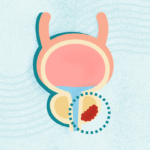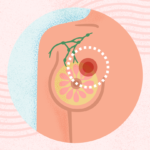For the primary time, Huntington’s illness was efficiently handled with AMT-130, a brand new gene remedy. This delays the illness by 75%, targets the underlying trigger, and offers sufferers a greater high quality of life.
For the primary time, scientists have discovered a solution to dramatically sluggish Huntington’s illness, a hereditary mind dysfunction that has been thought-about untreated. A groundbreaking gene remedy referred to as AMT-130 has proven promising leads to scientific trials, slowing illness development by as much as 75%. Huntington’s sickness slowly damages nerve cells within the mind, resulting in issues of motion, reminiscence and independence. Till now, sufferers might solely depend on therapies that handle their signs, not on the illness itself. Nevertheless, new analysis reveals that issues could also be altering. Gene remedy allowed sufferers to expertise a lot slower declines, take pleasure in extra years of excellent high quality life, and provides their households a purpose to really feel hopeful about their future.
What did the researchers discover?
Huntington’s illness (HD) is commonly described as a mixture of dementia, Parkinson’s illness, and motor neuronal illness as a result of it impacts reminiscence, motion and psychological well being. It’s genetic and means working by way of the household, and folks with one affected mother or father are 50% more likely to inherit it. The UK crew main a number of the trials reported that gene remedy slowed the decline in sufferers by an astounding 75%. To place that into perspective, the anticipated degradation for a yr might develop over 4 years. For households that had been used to look at their family members fade shortly, this might imply a greater life for many years. Professor Saratabrizi, director of the Huntington Illness Centre at College Faculty London, calls the outcomes “spectacular,” and goes past what researchers imagined.
Why is Huntington’s illness tough to deal with?
Huntington is attributable to a faulty gene that produces a poisonous protein referred to as huntitin, which slowly kills mind cells. Signs normally seem in the course of the unit and worsen over 10-20 years, with sufferers requiring full-time care. Till now, therapy has solely allowed for assuaging signs similar to involuntary actions and temper modifications, however not one of the sickness itself has slowed down. That is why I really feel this breakthrough is extraordinarily vital. It straight targets the basis trigger in addition to seen results.

How does AMT-130 gene remedy work?
Remedy of this mind illness entails one-time mind surgical procedure that lasts between 12 and 18 hours. A surgeon, led by real-time MRI, carries innocent viruses carrying new genetic directions to 2 mind areas: the caudate nucleus and putamen. These directions instruct mind cells to cut back the manufacturing of poisonous huntitin proteins. By reducing this protein, therapy slows down or probably stops injury to mind cells. Not like earlier medicines that solely managed signs, AMT-130 goals to alter the true sickness itself in Huntington’s therapy.
What does this imply for sufferers and their households?
For these affected, potential impacts are life-changing. As an alternative of a relentless decline, a single therapy might stay unbiased for years, and even a long time. Households, as soon as confronted with the understanding of speedy deterioration, now have purpose to need stability. Therapies are anticipated to be extraordinarily costly, however consultants consider their long-term effectiveness is efficacious. For the primary time, Huntington sufferers and their family members can think about a extra manageable future.











